They say knowing you have a problem is halfway to solving it. In the case of a drafty, uncomfortable home with high energy costs, an energy audit helps you understand just where your house is underperforming — and what it will take to fix it. It’s the first step to better home performance, and it’s not a very heavy lift, as long as you have the right partner.
A home energy audit is an inspection of your home that focuses on energy use, health, and safety. Where is your home losing energy? Is excess moisture causing mold or mildew to grow? Is there adequate ventilation for healthy indoor air? These are just some of the questions energy auditors are looking to answer as part of their assessment. If you’re experiencing energy and comfort issues in your home, it may be time to seek out an expert’s opinion. Here’s what you can expect during your energy audit.
If you’ve ever accompanied a home inspector on a pre-sale walkthrough, an energy audit will feel very familiar. “You always start with an exterior walk, where you’re looking for how the house manages water,” says Rob Howard, president of Howard Building Science and a Pearl Network Builder. “How do the roof and the gutters look? Is it getting the water off the roof and away from the house? You’re looking at chimneys or flues coming out of the roof.”
Water management is important because leaks can lead to mold, which can have serious health implications. From there, the other elements that comprise the building envelope receive a thorough inspection. “What kind of condition are the windows and doors in?” asks Howard. “We look at the mechanical equipment and check out what kind of utilities are connected to the house.” Howard typically asks homeowners to gather a year’s worth of utility bills to compare what’s happening in peak use.
Some inspectors use infrared cameras to see how heat moves through the home’s walls. What’s upstairs is also a key concern. “We like to do a top-down approach starting with the attic,” says Howard. “It’s much easier to see how much insulation is up there as compared to the walls. We’re looking at air sealing around any penetrations, including scuttle holes (removable access to the attic), pull-down ladders, and attic fans.”
Howard’s basic audit takes about four hours. For more detailed audits, he’ll perform a blower door test and stress test the home’s duct system.
“Every house I’ve looked at needed air sealing, duct sealing, and insulation,” says Howard. “You’re losing about 30% of the air you paid for because of leaky ductwork. We want to control air leakage.”
Related Post: How Your Home's Shell Impacts Health, Safety, and Efficiency
Three main concerns typically prompt a homeowner to obtain an energy audit. “High energy bills or overall comfort complaints are the two biggest,” says Howard. “The third driver is indoor air quality. There’s a heightened awareness now, especially post-pandemic, about the need for better ventilation to get better air quality in our homes.”
In addition to performing energy audits and educating others about how they work, Howard also works in general contracting, which helps him spot likely offenders in a house with high fuel bills or uncomfortable interior spaces. “As homeowners, we blame it on the HVAC system, but a lot of times, it’s the building envelope,” he says. “Air leakage from the envelope or into the envelope is a big deal, as is duct leakage.”
Energy auditors like Howard acquire their training from companies that specialize in educating home inspectors, including the Building Performance Institute. The instruction includes class time and fieldwork. “They’re training you on how to look at a home from its envelope to its mechanical systems, but also from a health and safety perspective,” says Howard. “Almost like a building inspector would do in new construction.”
The training in recent years is placing more emphasis on inspecting the elements of a totally healthy home. “Some of it is purely safety-related, but some of it is thinking about what things in the home are impacting the air quality,” says Howard.
According to most sources, a typical home energy audit costs about $500, depending on location and the size of the home. Be sure to check with your local utility — they may offer cost incentives for having one conducted. The 2022 Inflation Reduction Act's Energy Efficient Home Improvement Tax Credit covers the cost of home energy audits up to $150.
Related Post: Homeowner’s Guide to Energy-Efficiency Rebates and Tax Credits
A quality auditor should provide you with a detailed written report. “I’m going to write a report with lots of pictures and solutions,” says Howard. “As a contractor, I also offer a quote to fix the problems, prioritizing from a health and safety factor.” The report you receive after the audit should highlight where you can get the most bang for your buck. A lot of energy fixes can be accomplished at low costs and will pay for themselves quickly.
Related Post: The Ins and Outs of Insulation
Showing up and trailing along with the auditor will pay a lot of dividends. “It’s important for the homeowner to be there when the auditor is there,” says Howard. “Before they show up, prepare a list of things for the auditor that you are concerned about. You’re paying them to be there, and you’re not getting the full benefit if you don’t walk through with the inspector.”
Once you’ve completed the energy audit, it’s critical to make a plan for improvements and cost savings. To take your fight against a drafty house to the next level, login to the award-winning Green Door app to search for an energy auditor from the Pearl Network and create a Home Investment Plan to prioritize your energy improvements based on your goals.


Pearl is transforming the housing market by scoring, verifying, and certifying the performance of homes across the country.